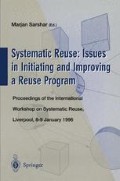Abstract
The Open Systems movement of the 1980’s and 90’s offered users the prospect of hardware platform independent applications running on UNIX. The idea was that with all vendors running a standard UNIX, users could easily move their applications from one vendor’s RISC to another. That way they wouldn’t be “locked” into a particular vendor’s hardware - as they had been on mainframes and minis in the 70’s and 80’s. Although things haven’t worked out quite like that, primarily because each vendor developed its own flavour of UNIX, the move to develop applications on, and migrate applications to UNIX has been a steady one.
The Distributed Applications movement of the 1990’s offers users the prospect of software platform independent software. The key enabling technology for this is standardised object technology. The big idea is that you can create an object and be confident that it will interoperate with other objects created by you and other people. For this idea to work, there have to be object standards and wide adoption of these standards.
The initial set of such standards now exists and they have the support of the vast majority of the major computer, software and systems vendors, as well as many of the world’s largest end-users.
These standards are the Object Management Group (OMG) CORBA standards. CORBA stands for Common Object Request Broker Architecture and Specification. There are 520 OMG members, which makes it the world’s largest software development consortium. During the last six years, OMG has established a whole set of Distributed Applications standards, the most important of which are how objects are defined (OMG Object Model), how objects communicate with each other (OMG CORBA), and how objects are realised and maintained (OMG CORBAservices).
Access this chapter
Tax calculation will be finalised at checkout
Purchases are for personal use only
Preview
Unable to display preview. Download preview PDF.
Editor information
Editors and Affiliations
Rights and permissions
Copyright information
© 1996 Springer-Verlag London Limited
About this paper
Cite this paper
Hassall, J., Oulton, K. (1996). Migrating a Legacy System to Object Technology. In: Sarshar, M. (eds) Systematic Reuse: Issues in Initiating and Improving a Reuse Program. Springer, London. https://doi.org/10.1007/978-1-4471-1484-0_9
Download citation
DOI: https://doi.org/10.1007/978-1-4471-1484-0_9
Publisher Name: Springer, London
Print ISBN: 978-3-540-76012-2
Online ISBN: 978-1-4471-1484-0
eBook Packages: Springer Book Archive

